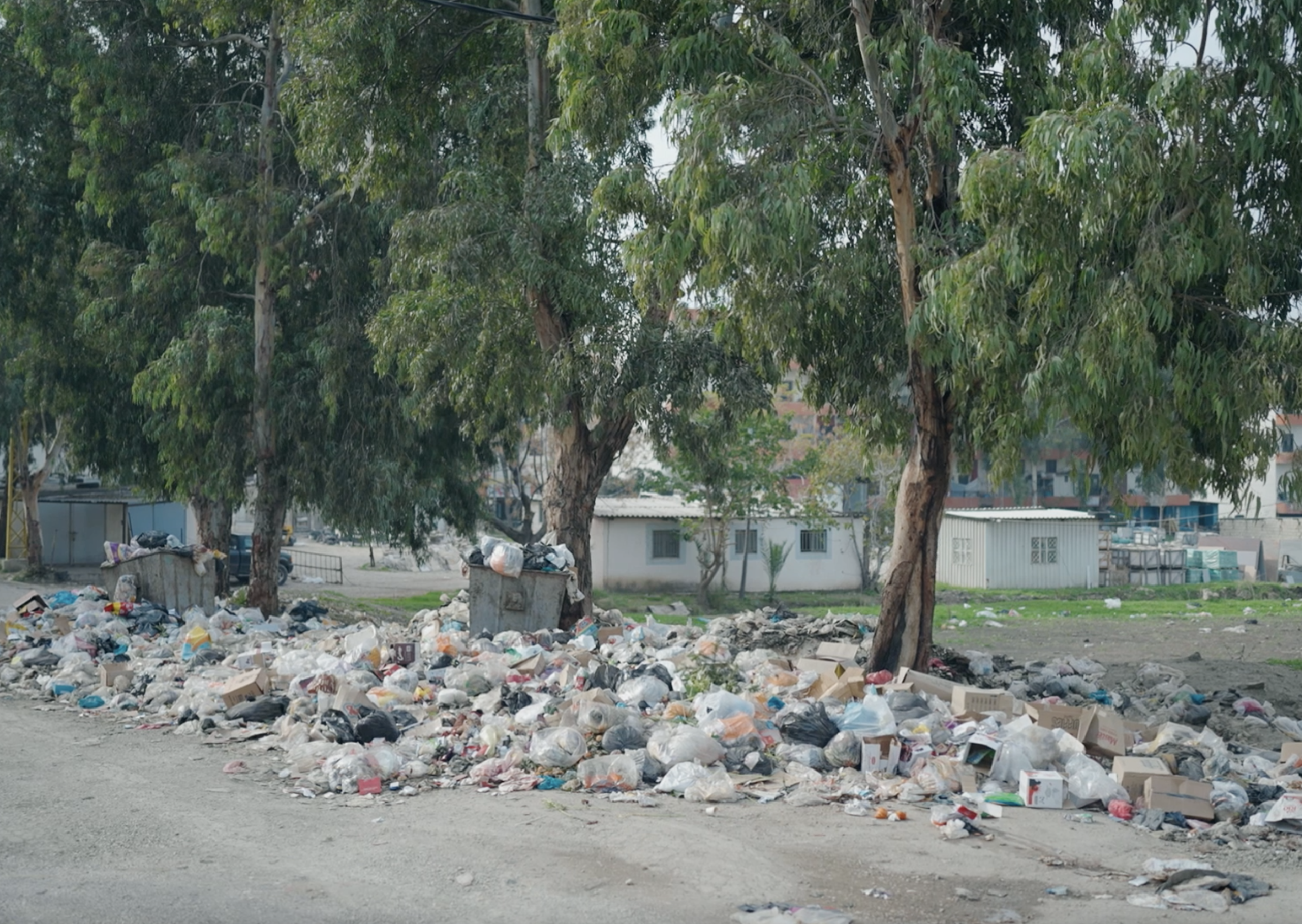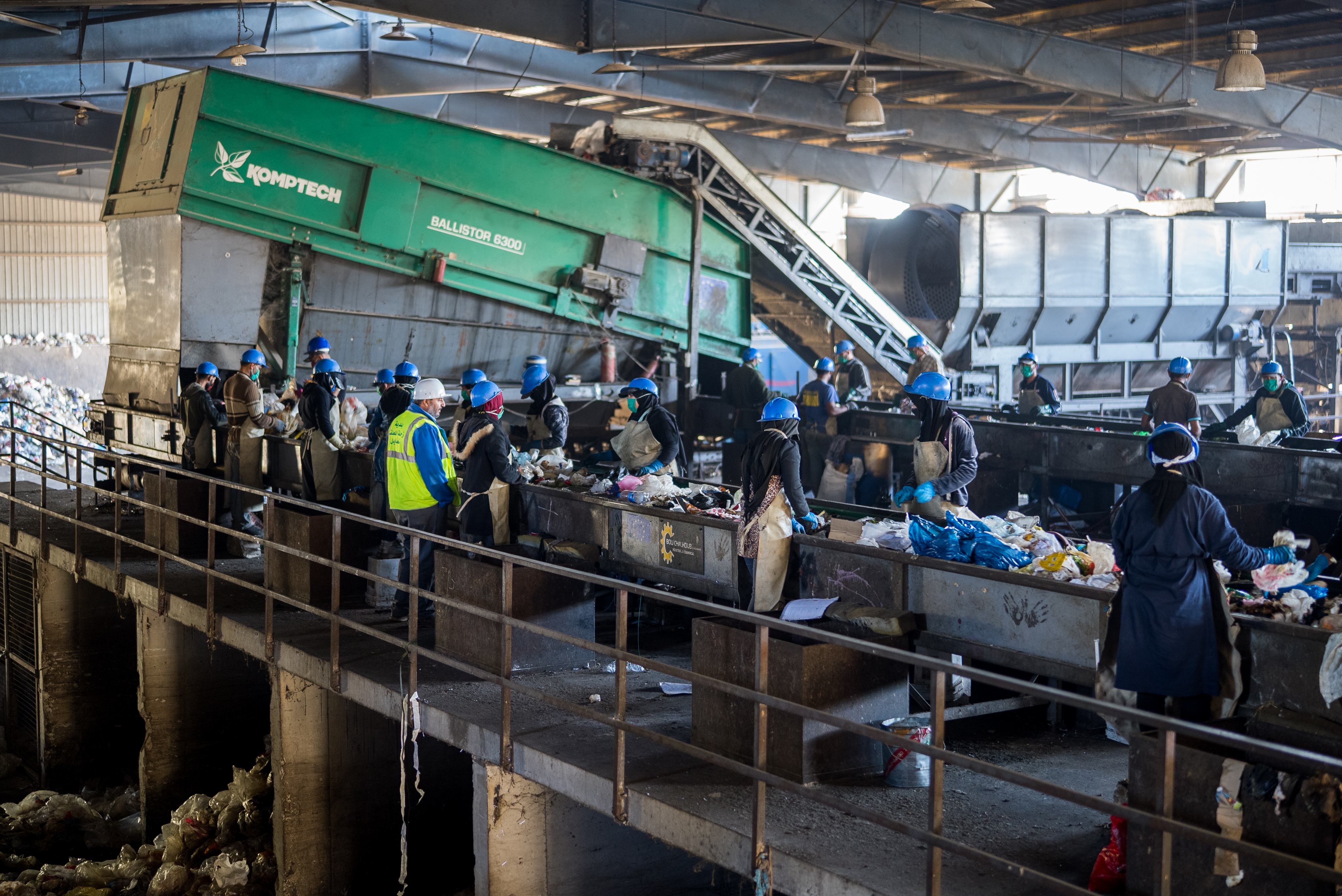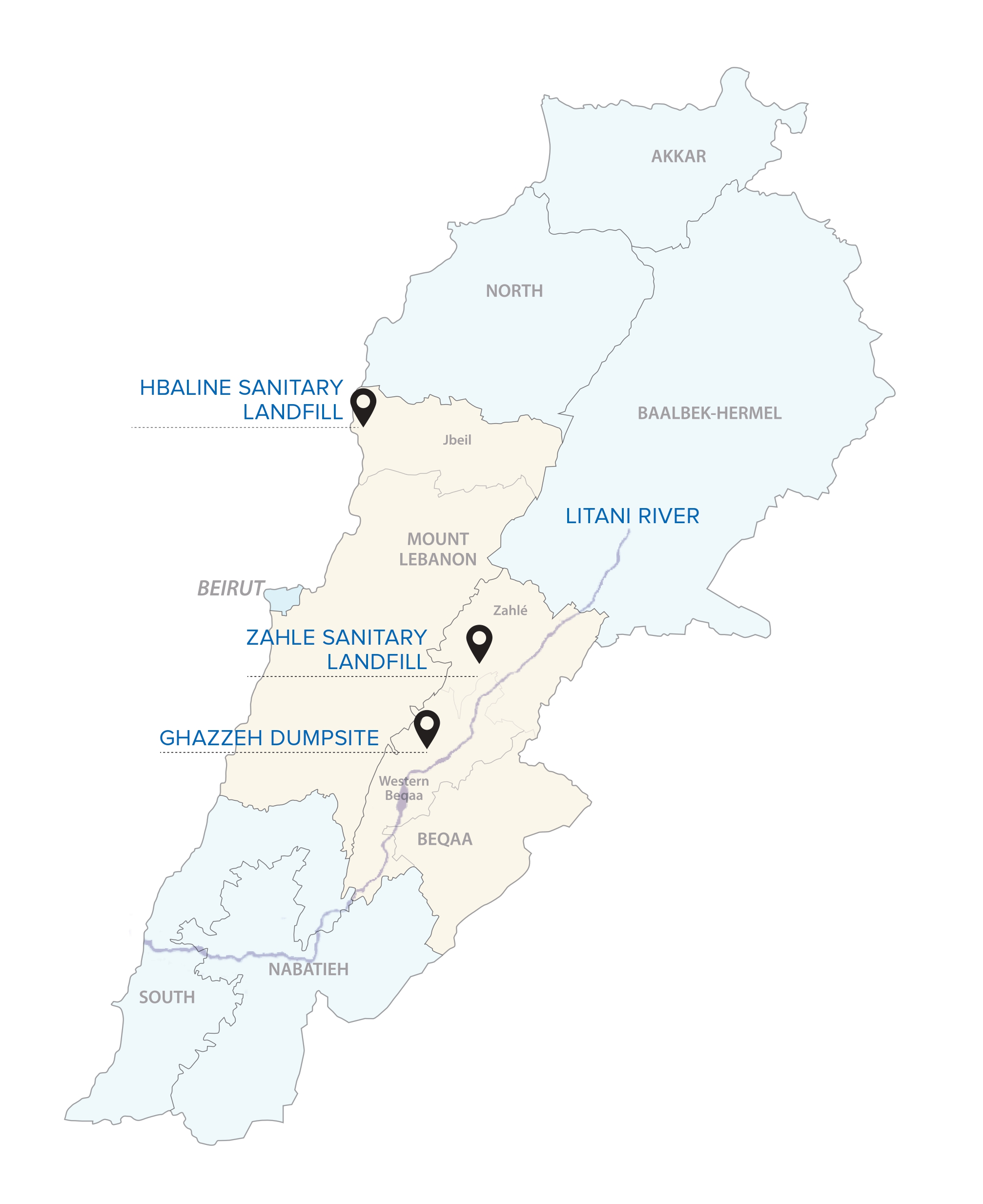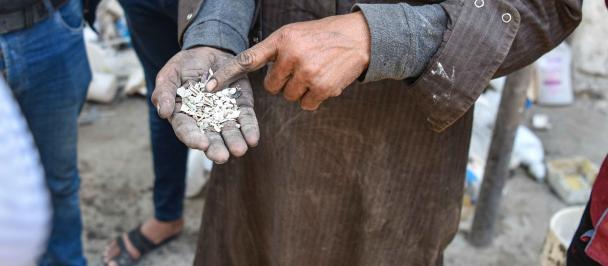Transforming waste into opportunity: UNDP and KFAED join efforts for Lebanon’s sustainable future
November 22, 2023

Solid Waste Crisis
Lebanon, a country of rich history and spectacular nature, had a shadow cast upon its environment in 2015. A mounting waste crisis began to plague the country, with landfills reaching their capacity and improper waste disposal becoming a common sight in the streets. The impact of Lebanon's waste crisis on its’ people has been profound and far-reaching. Beyond the visual plague of overflowing landfills and streets choked with garbage, the crisis has taken a toll on public health, well-being, and the overall quality of life. The persistent presence of waste has led to increased air and water pollution, triggering health issues. Furthermore, the pungent odor and unsightly surroundings have eroded the sense of pride and dignity that communities once held for their neighborhoods. The waste crisis also created economic hardships as businesses suffered, and tourism and job opportunities lagged. Above all, it tested the patience and resilience of the Lebanese people, who had to endure this crisis for far too long.
Since the waste crisis, Lebanon has been through a compounded crisis triggered by an economic and monetary collapse, which was amplified by the COVID-19 pandemic, and the Beirut blast in 2020, all the while the country has been hosting the largest refugee per capita and per square kilometer in the world since the onset of the Syria crisis[1].

Inside the Zahle Sanitary Landfill
Over the years, UNDP continued to play a pivotal role in supporting Lebanon and its’ people through integrated solutions, and good practices, and by promoting advancements in solid waste management. Working closely with the government, UNDP has assumed a strategic role in planning and developing sector-specific strategies and roadmaps. Additionally, UNDP has been actively implementing projects in collaboration with local authorities, municipalities, and communities, crafting comprehensive waste management plans that cater to the unique needs of each region in Lebanon, while empowering communities to foster sustainable practices.
In 2022, UNDP and the Kuwait Fund for Arab Economic Development (KFAED), joined forces to support Lebanon in addressing challenges related to solid waste management. The new partnership translated into a project titled ‘Stabilization through Solid Waste Management in Lebanon’, which has two main components that are aligned with the priorities of the Government of Lebanon.
[1] https://www.unhcr.org/lb/at-a-glance

The Zahle Sanitary Landfill
The first component of the project aims at the construction of a sanitary landfill cell in Hbaline (Jbeil Caza and Zahle Caza), over a range of 200,000m3 where more than 72,000 Syrian refugees reside[1]. Hbaline is located in the governorate of Jbeil and Keserwan where historically the bulk amount of waste generated from the Jbeil Caza, mainly comprising 14 municipalities, was disposed of at an unsanitary dumpsite located in the area.
The Zahle sanitary landfill is located in the governorate of Bekaa, serving more than 26 municipalities within the Zahle Caza. It was constructed in 1999 and has been serving the municipalities within the Zahle Caza for more than 20 years. It comprises 7 landfill cells that serve as a complementary facility to an existing and still operational waste sorting and composting facility. Through the partnership with KFAED, UNDP supports the Municipality of Zahle in the construction of a new landfill cell (cell 8) at the site which will enhance the capacity of the Municipality in receiving and managing municipal solid waste which has increased as a result of the crisis in Syria.
[1] 2020 UNHCR data 2020.

The second activity of the project focuses on the closure of the uncontrolled dumpsite in Ghazzeh, which like many other unregulated and improperly managed waste disposal sites, has had a significant negative impact on the communities and people living in the vicinity. Situated near the Litany River, the site occupies an area of 6000 m2 and previously served approximately 37,000 inhabitants, including Syrian refugees. Although it is no longer officially in use, its consequences extend far beyond environmental concerns and have deeply affected the daily lives and well-being of the vulnerable local communities and displaced people residing near the dumpsites, posing health hazards, environmental degradation, social and education disruptions, and causing psychological stress.
Given the deteriorating economic situation in Lebanon, the operational sustainability of existing material recovery facilities associated with solid waste management has been under immense pressure due to frequent power blackouts. To address this challenge and ensure the continuous functioning of these facilities and their sustainability, UNDP has proposed the installation of solar power systems at key solid waste facilities in Lebanon. At Zahle's solid waste facility, a photovoltaic or solar based system with a power capacity of 157-kilowatt peak will generate approximately 279.92-megawatt hour of electricity annually, providing crucial support for the facility's sustainable operation, while offering a range of economic, environmental, and social benefits. This approach will not only reduce energy costs and carbon emissions but also demonstrates a commitment to sustainability and contributes to the resilience and efficiency of waste management operations in the area.
The project’s activities also contribute to mitigating the impacts of climate change in Lebanon which holds a 0.07% contribution to global emissions. Like in other Arab states, climate change poses a growing threat to Lebanon, where its impacts are becoming increasingly evident. While the country is already grappling with political and economic challenges, the effects of climate change are exacerbating existing vulnerabilities. Landfills and solid waste management have a direct and significant linkage to climate change due to the release of methane and carbon dioxide during waste decomposition. In this context, to mitigate the impact of climate change, it is essential to reduce greenhouse gas emissions through waste reduction, improved landfill design, waste diversion, alternative waste management practices, and the establishment of proper solid waste management systems. Despite its multiple hardships, Lebanon has been committed to contributing to the global fight against climate change. In 2021, Lebanon submitted its revised Nationally Determined Contribution (NDC) with the support of UNDP, which pledges to reduce greenhouse gas emissions by 20%[1].
As the world gears up for COP28, the urgency to address the escalating climate crisis has reached unprecedented levels. Solid waste management emerges as an unsung hero in the battle against climate change, offering substantial opportunities for greenhouse gas emissions reduction, sustainable energy generation, and the advancement of circular economy principles. By recognizing the critical link between waste management and climate action, countries can collectively work towards achieving the goals set forth in COP28, fostering a cleaner, greener, and more equitable world for generations to come, including in Lebanon.
In the face of escalating environmental challenges in the region, Kuwait has positioned itself as one of the leading advocates for sustainable development, particularly in solid waste management. KFAED, a leading provider of development assistance, has played a key role in extending financial support to various Arab countries to improve energy, education, health, social services, and green projects[2]. In this context, Kuwait’s active participation in COP28 will play a crucial role in demonstrating the country’s dedication to global climate action and its willingness to collaborate with and support other countries of the Arab states, such as Lebanon, to address urgent environmental and climatic challenges.
[1] Lebanon’s Nationally Determined Contribution – updated version 2020.

 Locations
Locations